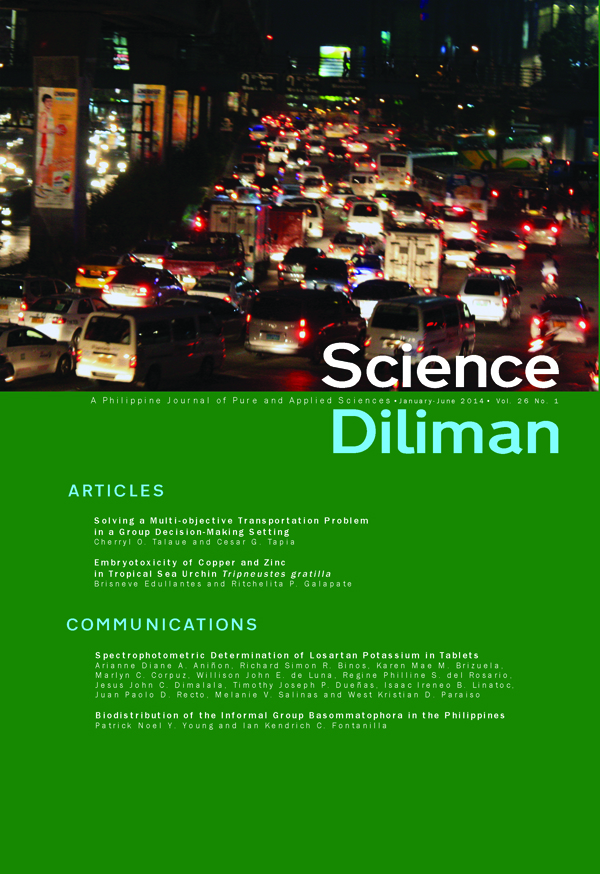Solving a Multi-objective Transportation Problem in a Group Decision-Making Setting
Abstract
In solving transportation problems, recent developments have seen interest in including several kinds of attribute (other than the classical cost and prof it attributes) that may even be incommensurate with one another. There exist several approaches in solving a transpor tation problem with multiple attributes/objectives. Some of the approaches allow a decision maker to input his/her preferences with respect to the multiple number of objectives that need to be concurrently optimized in a compromised way. The literature, however, seems to lack solution techniques that would deal with a real life decision-making situation wherein a group of decision makers is involved but would probably have different (even conflicting) preferences in solving a transportation problem with multiple objectives. In this research, we propose to utilize a fuzzy programming formulation and binary search technique (adopted from Tapia and Murtagh 1992) as a methodology to solve multi-objective transportation problem as a group decision-making concern. Fuzzy programming allows the decision makers to vary at any given iteration their fuzzy aspiration levels in terms of preference criteria and underachievement tolerance values. Since conflict in aspiration levels usually results in an infeasible situation, binary search is applied until a feasible and acceptable compromise solution is achieved. The main objective of this paper is to propose a valid and new methodology. Inasmuch as comparing existing methodologies is not our primary aim, we believe this is another major and serious research undertaking.
Keywords: Transportation problem, group decision-making, fuzzy programming



